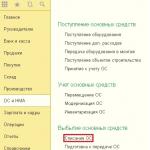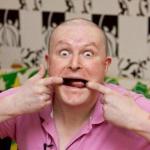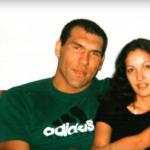Are you sure you know everything about yourself? Probably not each of us fully knows what he is capable of. It happens that a person lives his life and does not even realize what is actually hidden in him. We all have some abilities and qualities of character that, surprisingly, somehow magically manifest themselves in us at the moment of need. It turns out that in order to fully understand our essence, we need to reveal what is hidden in us. The numerology of the name will help with this. So, let's take a closer look at how to correctly calculate the numerological number of our secret self.
Write your full last name, first name and patronymic on a piece of paper and write down all the consonants that make up this data. Then count the consonants and bring the result of their addition to a single digit number.
Example: Ivanova Tamara Stepanovna. There are 12 consonants in this full name. We add up the numbers that make up this number: 1+2=3. The resulting number will tell you about hidden talents and abilities.
Number 1- you have the makings of a leader and a talented organizer. If you still haven’t found these qualities in yourself, then you need to develop them. You know how to set goals and achieve them. Besides, your mind is very original ideas. If you haven’t noticed this in yourself until now, then try to discover these talents in yourself.
Number 2- you have the ability to psychological analysis. If you don’t understand people so well and find it difficult to find a common language with them, then it’s time to develop your communicative skills. If you succeed, you will feel how miraculously your life has changed. If you are thinking about choosing a profession, then you are recommended to pay attention to such specialties as psychologist, psychoanalyst.

Number 3- you have incredible creativity that you simply need to develop. Maybe once in childhood, you weren’t able to draw at all, or someone criticized your plasticine sculpture, after which you decided to give up creativity forever. You have an excellent imagination and a talent for creating beauty, but you carefully hide it.
Number 4- your hidden abilities and talents are the ability to think logically and work hard. In fact, you are a workaholic. If now you cannot say this to yourself, it means that the time has not yet come when you need to show diligence and patience in your work.
Number 5- there is an adventurer hidden in you. If you haven’t noticed this in the future, then you need to experiment on yourself. For example, spontaneously go on a trip or start doing something you never even dreamed of before. Observe your emotions: if what you do brings you joy and positive emotions, then you are definitely a hidden adventurer.
Number 6- you are a born actor! You need to develop your speech to perfection, develop your voice and, go ahead, build an acting career. You are, without a doubt, a creative person. Even if you have nothing to do with creativity, in your everyday life, most likely, you are still surrounded by works of art.
Number 7- you know how to interest a person and convey the necessary information to him. You have a hidden teaching talent. Not only can you help people gain knowledge, but you yourself are able to constantly improve and develop.

Number 8- you are ambitious and assertive. If you cannot achieve something now, then you should develop these hidden desires in yourself as quickly as possible. In fact, you have business acumen and strategic thinking.
Number 9- you are a very noble and merciful person. If someone calls you ruthless and indifferent, then something made you become that way. Find these qualities in yourself, help people and you will notice how the world will sparkle with new colors.
We do not always play the role in life that is intended for us from above. If you previously thought that you knew everything about yourself, now you realize that there is always an opportunity to know yourself better. If you begin to develop in yourself talents and abilities that for some reason were hidden, you will be able to change in better side not only yourself, but also the world around us. Don't stop getting to know yourself! And don't forget to click and
09.10.2013 18:03
A person’s talents and abilities for a particular activity can be determined by the hills on the hand. This is quite simple...
One cooks well, another draws, the third knows how to lead effectively, the fourth runs fast, the fifth speaks well in public... Every person, without exception, has abilities. These are personal qualities inherent only to this particular person, which make him unique and provide advantages in certain types of activities. But these qualities are not always obvious. It happens that a person simply does not notice his strengths and tries to develop his weaknesses - he goes in a direction that will not lead him to high results. Understanding your abilities is already a big step towards self-realization and success. The question is - how to find out your abilities?
Why is it so important to understand your abilities?
 “Failure to understand one’s strengths leads to depression,” says Pavel Kochkin, author of the “Destination” project. The mechanism is very simple and is as follows: a person does not accept or does not see his strengths and his abilities, instead he focuses on the development of his weaknesses. For example, without the ability to public speaking, chooses a job that involves constant communication, and works on his public speaking and effective communication skills every day. You must understand that no matter what efforts he makes in this case, he will still not grow up to his ideal, and as a result, he will always be dissatisfied with himself. This is where depression arises.
“Failure to understand one’s strengths leads to depression,” says Pavel Kochkin, author of the “Destination” project. The mechanism is very simple and is as follows: a person does not accept or does not see his strengths and his abilities, instead he focuses on the development of his weaknesses. For example, without the ability to public speaking, chooses a job that involves constant communication, and works on his public speaking and effective communication skills every day. You must understand that no matter what efforts he makes in this case, he will still not grow up to his ideal, and as a result, he will always be dissatisfied with himself. This is where depression arises.
Using abilities, a person increases his efficiency many times and achieves high results, which leads to increased self-esteem. And the person who values, loves and respects himself is even more effective.
How to find out your abilities?
Nobody knows you better than you know yourself. Therefore, you must answer the question “what am I capable of” yourself. Pavel Kochkin gives several valuable advice How to understand your abilities and apply them in life:
1. Get to know yourself. Ask yourself: what am I best at? What makes me different from others? What achievements do I have, and how did I get them? Ask yourself the question “what am I good at” more than once. Let this question always be in your head. Evaluate your results and the means that helped you achieve them.
2. Recognize your strengths. Don't try to run away from yourself. Even if you think that one or another of your abilities is useless, do not reject it. There are a million options in the world on how to correctly implement this ability.
3.
Accept yourself for who you are and give yourself to the world that way. “Believe me, you are in demand for who you truly are in spirit and essence,” says Pavel.
Your abilities are the key to unlocking your potential, achieving outstanding results and success in life.
Pavel Kochkin advises: “Stop doing what is not yours.” strong point, for which you have no ability.” Understanding your abilities gives you a huge advantage - you become effective in your activities and achieve maximum results.
Instructions
Take a piece of paper, sit in a quiet place where no one will disturb you, and try to relax. Reflect on what you do well. Write down even little things, such as your ability to throw stones into water. This will help you relax and remember other skills. Even the simplest skills can be important.
Think about which profession your chosen activities are most suitable for. Write your profession or specialty next to each item on the list. Take a closer look to see if there are any specialties that are particularly common. Already at this stage, people often manage to find several directions for deeper searches.
Take a new sheet of paper and write on it which professions you would be interested in working in. This could be anything from the director of a large company to a traveling acrobat. Next to each profession, write what exactly you like about it. It may well turn out that some things that attracted you in certain professions, which seemed unattainable due to circumstances, can be obtained in another way, by doing some things from the first list.
On the third sheet, write what you would not want to do under any circumstances. Be honest, if you feel that leading is not for you, then do not try to ignore it, hoping to “re-educate” yourself.
Now place all three sheets of paper in front of you. The first one shows the things that you love to do the most and that you are good at, as well as the professions that can easily become successful for you. On the second - the things that arouse your greatest interest, these are the ones in which you will achieve success, they will help you decide on a niche in your specialization. The intersection of the first two sheets will give the work list. The third sheet will help you cross out from it all those activities that will slow down your career in the future or lead to disappointment in it; it is better to delegate them to someone else, so that you yourself can reveal yourself in what you have the ability to do.
Most likely, you end up with several occupations or professions that are determined by your abilities. Before making your final choice, try each of them for 2-4 weeks. You can get a job as an intern, it’s useful to generally learn more about it. After such practice, doubts about what your inclinations are and what your soul is about usually disappear on their own.
Please note
Despite the fact that the realization of your talents is one of the cornerstones in understanding a person’s goals, you should still understand that you will be good at exactly what you give your heart to. If your favorite thing doesn’t even work out at first, then after a certain amount of time dedicated to honing your skills and practicing, you will definitely notice the result. Many whom humanity considers geniuses noted that it was not talent that helped them break through, but hard work and love for their work. Therefore, when choosing, always focus on the feeling of joy that arises at the thought that you will attend your chosen activity.
The IQ test uses exercises on arithmetic calculation, handling logical series, ability to complete geometric figure, the ability to recognize a fragment, memorize facts, manipulate letters in words, memorize technical drawings. After passing the test, you will see a graph with average values for different ages and a note about your IQ value, and you will also be able to find out the correct answers.
Logic, intuition and intelligence.
Many people believe that intelligence is the same as intelligence. Psychologists interpret intelligence more broadly. This is not only the ability to logical thinking, but also the ability to correctly assess the situation and find right decisions. Intelligence is also the ability to adapt to life and not get lost when it throws up surprises. As for logic and intuition, these are faithful assistants to the intellect in solving various problems. And it is the intellect that determines what to give preference to. Take this test to see how well logic and intuition help you solve mental problems.
Are you an attentive person?
There are people who are always on the alert - almost nothing can surprise them, stun them, or baffle them. Their complete opposite is absent-minded and inattentive people who get lost in the simplest situations. The proposed test is more of a game than a reason for serious conclusions, but still, maybe it will make you think about something. Answer "yes" or "no" to the following questions:
General Verbal Test
Verbal giftedness - mastery of lexicographic skills - understanding the meaning of words and the ability to use them effectively. People with high level Those with verbal skills often achieve success in professional fields related to the written word (writer, journalist, editor, critic), in teaching, in the legal industry, and this also includes actors, psychologists, translators and interviewers.
Eysenck test No. 1
Dr. Eysenck developed an intelligence quotient (IQ) test in the mid-20th century. His tests provide the most accurate IQ measurement. When tested on a typical modern intelligence test, about 50% of the population has an IQ between 90 and 110, 25% below 90. (A score of 100 is the sample average). And only 14.5% of people have an IQ from 110 to 120, 7% - from 120 to 130, 3% - from 130 to 140. And no more than 0.5% of the population have an IQ of more than 140.
Think logically! Can you?
The concept of “logical”, i.e. analytical, or deductive, can be used in relation to a person who is characterized by the ability to make inferences or the ability to build an orderly and convincing argument.
IQ test No. 1 (brain explosion)
IQ (translation from English intelligence quotient) - amount of intelligence (CI), intellectual art, mental alertness, work of thought. In Russia, the term IQ has taken root - a quantitative assessment of a person’s level of intelligence relative to the average person of the same age. IQ tests measure thinking ability, not knowledge (“sophistication”). The IQ test uses exercises on arithmetic calculation, handling logical series, the ability to complete a geometric figure, the ability to recognize a fragment, memorizing facts, manipulating letters in words, memorizing technical drawings. Tests not only show your CI, but also reveal your preferred way of thinking (logical, figurative, mathematical, verbal). The lower the score you get for one of the strategies, the greater the reserves hidden in you. By identifying gaps in your strategies, you can then train them and increase your CI.
Every year, life becomes more and more dynamic. The world is constantly changing and demands the same from its inhabitants. To modern man you need to constantly learn new things, develop your skills, so as not to find yourself on the sidelines. The right choice profession plays a very important role in such a situation.
The ability to understand in time which area of activity a person will achieve the greatest success in is one of the keys to a great future. That is why tests of special abilities are now in great demand.
Aptitude tests diagnose a person's level of general and specific abilities. Such tests help determine an individual’s aptitude for learning and his level of success, and choose a profession in which a person will achieve maximum success.
All tests to identify abilities can be divided into three types:
- determination of intelligence level
- determining the level of creativity
- special ability tests
The first two types of tests serve mainly to determine the current level of development of a person’s various abilities and cannot predict in which areas in the future he can achieve success.
Such tests show the level of mental and emotional development here and now, but since personality tends to change, there is a third type of test. It is designed to identify special abilities and is more narrowly focused. This testing predicts a person’s success in a specific type of activity, identifying his individual inclinations.
History of origin
The development of testing special abilities began in the wake of the development of psychological counseling.
Presentation: "Tests and various types of testing"
Psychologists were interested in knowing more about the capabilities of a particular individual, as well as the areas where his skills would be most in demand. Tests were used almost everywhere: for admission to technical, musical, medical and others. educational institutions, as well as for consulting and distributing working personnel. Identifying the ability to learn has become no less important than determining the general level of development of a person’s intelligence.
The basis for the creation of testing was Charles Spearman's two-factor theory, published in 1904. Spearman wrote that at the basis of any activity lies some general beginning, which is the general factor (G). This factor characterizes general intelligence. But along with it there is a specific factor S, which is characteristic of one specific activity. Later, this theory was supplemented by scientists and turned into a multifactorial theory.
Compilation methodology
The essence of the methods for testing accessibility and learning ability is quite simple. For each ability group, certain blocks of questions are formed. These questions constitute a separate special test, which determines whether a person has an aptitude for a certain type of activity, as well as the ability to learn it.
Since undergoing many tests to identify the desired type activities take a lot of time, so-called test batteries are now more common.
They help carry out common person, grouping questions into blocks in one test. Such testing allows you to measure a person’s tendencies to various areas activities and choose a profession.

Test batteries help measure various independent features of the subject’s intelligence, which together contribute to the implementation of a particular activity. For example, a skill such as driving a car can be useful in many technical areas, because requires the proper level of concentration.
Identifying special human abilities
Special ability tests usually include the following blocks of questions:
- Assessment of verbal abilities - this block tests knowledge of language grammar, the ability to understand analogies and follow detailed instructions. This block tests the literacy of the individual as a whole and his ability to perceive information.
- Numerical test - verification basic knowledge mathematics and number sequences. This block may also include special questions with graphs and diagrams to test your ability to work with and interpret them.
- Abstract thinking is the ability to find hidden logic in the proposed tasks and, based on it, propose a solution. This block helps to understand how quickly a person learns new things, as well as his ability to learn in general.
- Definition test – working with shapes, visualizing objects. It is used quite rarely. For example, when testing London taxi drivers, who must not only drive well and quickly deliver a passenger to their final destination, but also have an idea of many city objects in their heads in order to be able to talk about them.
- Technical thinking - knowledge of the basics of physics and mechanics.

From time to time, proposals arise to include tests for abilities that are supernatural in nature (for example, clairvoyance), but they are rather lukewarmly received by scientists. Mainly due to the lack of experiments confirming the existence of paranormal abilities in people. Therefore, tests for supernatural abilities are still extremely rarely carried out by professional researchers.
In general, all testing of special abilities can be divided into two large groups:
- tests for mental agility – reveal the ability to learn, the ability to think abstractly, quickly and effectively solve emerging problems and think strategically;
- generalization tests - test the ability to focus on past experience and use it in future activities.
Effective or not?
The effectiveness of tests of special abilities is recognized by many psychodiagnosticians.
Timely identification of a propensity to learn in a particular area helps to minimize possible psychological problems for an individual in the future. Testing helps a still-forming personality decide on a field of activity and not waste energy on unsuitable work, as well as help in professional self-determination.
The benefits of tests in the field of professional selection and professional counseling are undoubted.
Testing helps identify weaknesses workers and understand the reasons for inefficiency. But, despite this, psychodiagnosticians continue to research information about the validity and level of reliability of the results obtained during tests, as well as improve the questions themselves and methods for using the obtained indicators. Scientists are seeking to understand the impact various factors to perform tests.
Despite all the achievements of the methodology, today tests of special abilities represent a wide field for analysis and study.




